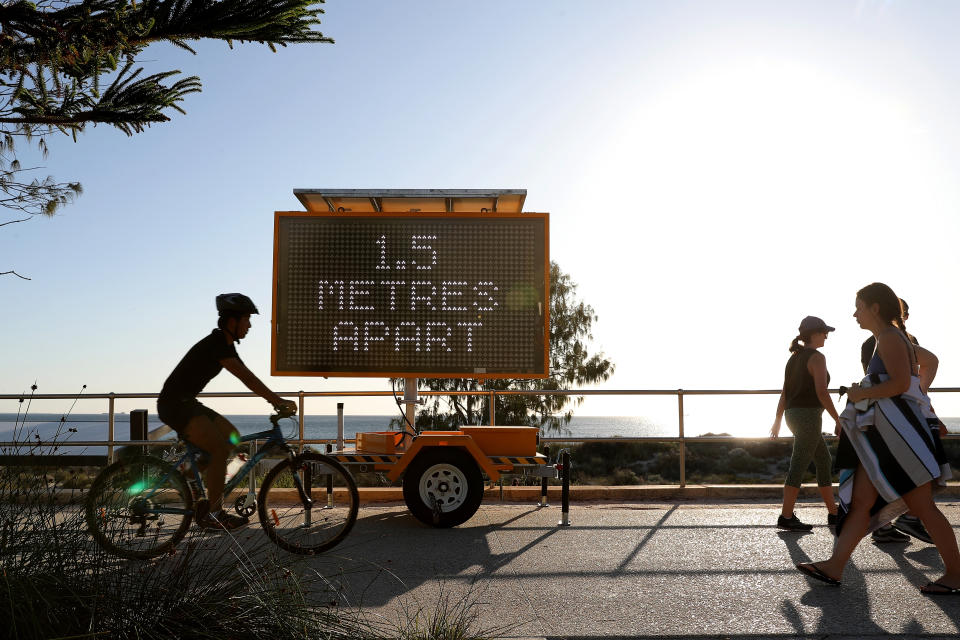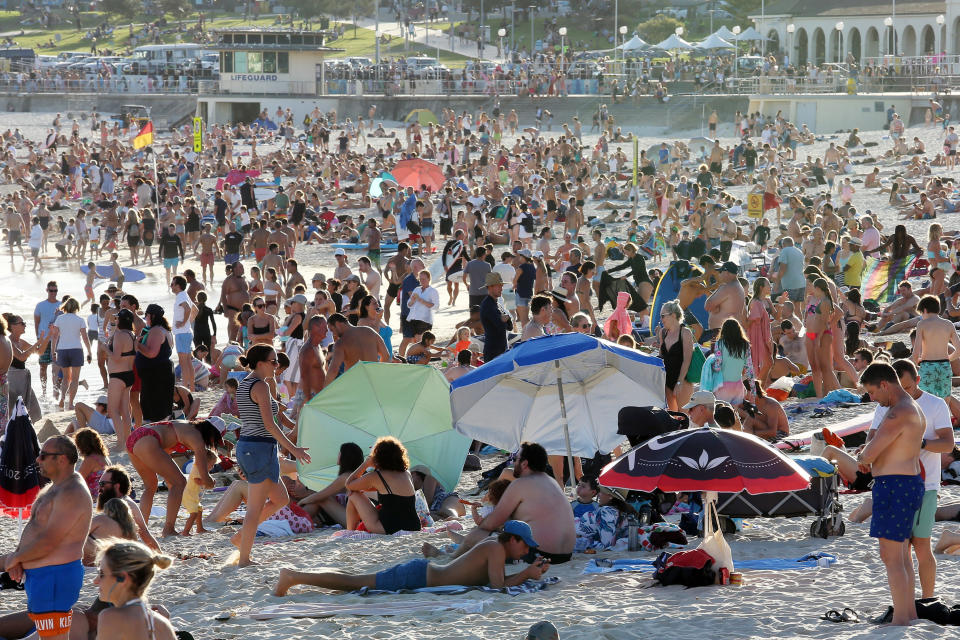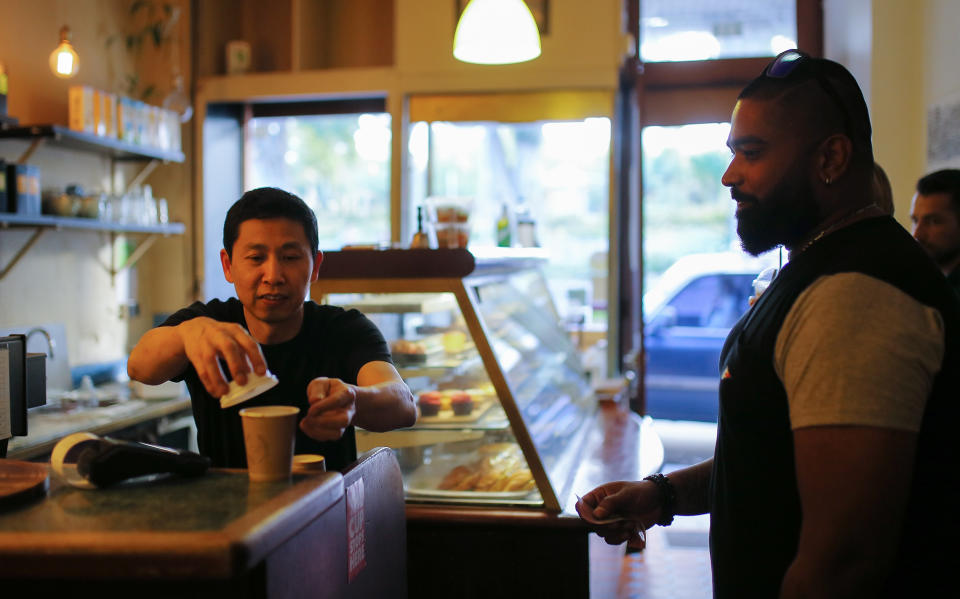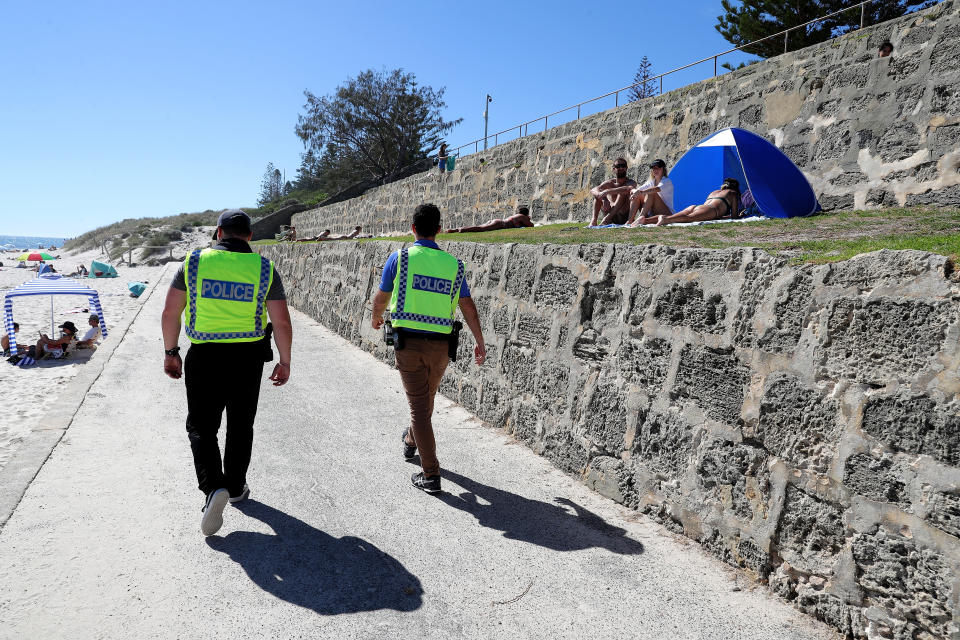Why people are not abiding by social-distancing rules
Although Australians have been urged for weeks to isolate and abide by the government’s new strict social-distancing laws, crowds of people are still being seen gathering at beaches, parks and coffee shops.
Residents are only allowed to leave their homes for necessary reasons, such as grocery shopping and work, and must keep a 1.5-metre space between themselves and others while outside in a bid to stop the spread of coronavirus pandemic.
In NSW and Victoria, two friends can meet in public for the purpose of exercise.
Coronavirus live blog: Latest news and updates from Australia

However, police have handed out hundreds of hefty fines since March 17 to numerous people caught violating the restrictions.
A group of friends were handed a $1600 fine each after being busted playing video games in a living room.
One man was fined for sitting on a picnic bench and another was told off for stopping outside to eat a kebab.
Neighbours are now being encouraged to dob in people, with hundreds of others complaining online about joggers, cyclists, young families with kids, coffee drinkers, teens and dog walkers not following the rules.
Why are some people not following the virus rules?
There appear to be four categories of reasons as to why some groups appear to be disregarding the restrictions, Dr Rachael Sharman, Senior Lecturer in Psychology with the University of the Sunshine Coast, told Yahoo News Australia.
“Stupid, selfish, genuinely confused by the laws or feel they have some personal characteristic that protects them from the virus,” she said.
Although those deliberately flouting the rules represent a minority, Dr Sharman said young people or children might feel “immune” to the deadly virus because COVID-19 doesn’t seem to represent a serious threat to them.
“Given the government is keeping daycare and in some cases schools open – that message is reinforced by authorities,” Dr Sharman explained.

Others, like joggers and cyclists, might perceive themselves to be “particularly healthy and may also feel a heightened sense of immunity”.
“On government communication, there's no doubt the differences between state rules and the rapidly changing restrictions have caused confusion – so some people are probably honestly confused about what they are supposed to be doing,” the senior lecturer said.
“A number of people seem to be downright ignorant of the principle of exponential growth, so they probably look at Australia's relatively low numbers and can't figure out why we are so worried about a few thousand cases. For reference – see America – that's why we are so worried.
“To be perfectly frank, some people just don't care and have an ‘I’m alright Jack’ approach, and don't see why they should have to change their behaviour to protect someone else.”

What will cause people to change their behaviours?
Research suggests people will change their behaviour based on four indicators: their perception of risk, their belief in the effectiveness of distancing behaviours, if they believe they’re capable of doing those behaviours and if their neighbours are engaging in such behaviours, Dr Cynthia Rohrbeck told Yahoo News Australia.
“If I don’t perceive much threat of the virus, I am less inclined to engage in physical distancing,” the associate professor with the Department of Psychological and Brain Sciences at George Washington University, in the US, said.

“In addition, I need to believe that staying away from others will prevent the spread of coronavirus and I have to believe that I am able to do so. Finally, I will be influenced by my friends' and neighbours’ behaviour and what they think of my behaviour.
“For example: two weeks ago, we may not have perceived masks to be helpful and we may have encountered puzzled reactions from others if we wore a mask at our local grocery store. Today our neighbours might thank us for doing so.”
It is important to consider individual “costs” and “rewards” of engaging in recommended behaviours, Dr Rohrbeck said her collaborator, decision sciences professor Philip Wirtz noted.
“So, with physical-distancing behaviours, there are costs (the loss of contact with others) and rewards (preventing the spread of COVID-19),” she said.
Social norms may evolve in the future and help individuals follow new recommendations for social distancing, Dr Rohrbeck added.
Do you have a story tip? Email: newsroomau@yahoonews.com.
You can also follow us on Facebook, Instagram and Twitter and download the Yahoo News app from the App Store or Google Play.





